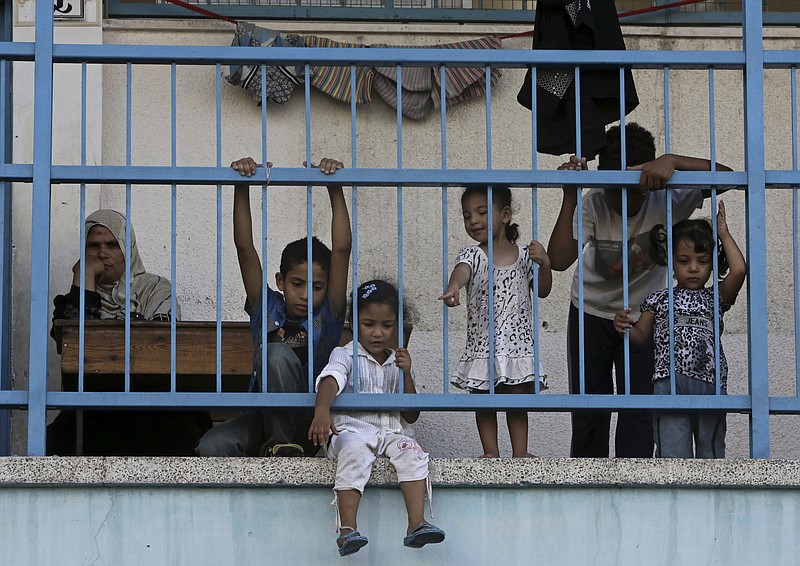CAIRO (AP) - Israel and Hamas agreed to extend a temporary cease-fire for five days, Egyptian and Palestinian officials said Wednesday, potentially averting renewed violence and permitting the sides to continue to negotiate a substantive deal to end the war in Gaza.
Egyptian mediators had been racing to pin down a long-term cease-fire as a temporary truce was set to expire at midnight. The Israeli military said five rockets were launched at Israel in the hours leading up to the end of the cease-fire.
Egypt's foreign ministry and the head of the Palestinian negotiating team announced the extension. A spokesman for Israel's prime minister had no immediate comment.
The cease-fire extension is meant to grant both sides additional time to negotiate a longer-term truce and a roadmap for the coastal territory.
The lull in violence has also been a welcome reprieve for Israelis and Palestinians living in Gaza. During the temporary cease-fire, Israel halted military operations in the war-battered coastal territory and Gaza militants stopped firing rockets, aside from the ones late Wednesday.
"We have agreed on a cease-fire for five days," said Azzam al-Ahmad, the head of the Palestinian delegation to the Cairo talks. He noted that there had been "significant progress" but that disagreements remained over the wording regarding security arrangements, reconstruction efforts for the Gaza Strip and the permissible fishing area.
The two sides were considering an Egyptian proposal that partially addresses their demands, but deep differences have kept the deal in doubt.
Hamas is seeking an end to a crippling blockade imposed by Israel and Egypt in 2007. The blockade has greatly limited the movement of Palestinians in and out of the territory of 1.8 million people. It has also restricted the flow of goods into Gaza and blocked virtually all exports.
Israel says the closure is necessary to prevent arms smuggling, and officials are reluctant to make any concessions that would allow Hamas to declare victory.
Israel wants Hamas to disarm, or at least be prevented from re-arming. Hamas has recovered from previous rounds of violence with Israel, including a major three-week ground operation in January 2009 and another weeklong air offensive in 2012. It now controls an arsenal of thousands of rockets, some with long ranges and powerful. Gaza militants fired more than 3,000 rockets toward Israel during the war.
Neither side is likely to see all of its demands met, but the Egyptian proposal tabled Tuesday offered some solutions. A member of the Palestinian delegation at the Cairo talks said the proposal calls for easing parts of the Israeli blockade of Gaza, bringing some relief to the territory.
The proposal leaves the key areas of disagreement, including Hamas' demand for a full lifting of the blockade and Israeli calls for Hamas to disarm, to later negotiations.
The Palestinian negotiator said he had some reservations about the proposal and would try to improve it.
"We would like to see more cross-border freedom, and also to have the question of a Gaza seaport and airport discussed," he said.
Amid the cease-fire, an Associated Press video journalist and a freelance Palestinian translator working with him were killed Wednesday when ordnance left over from the war exploded as they reported on the conflict's aftermath.

